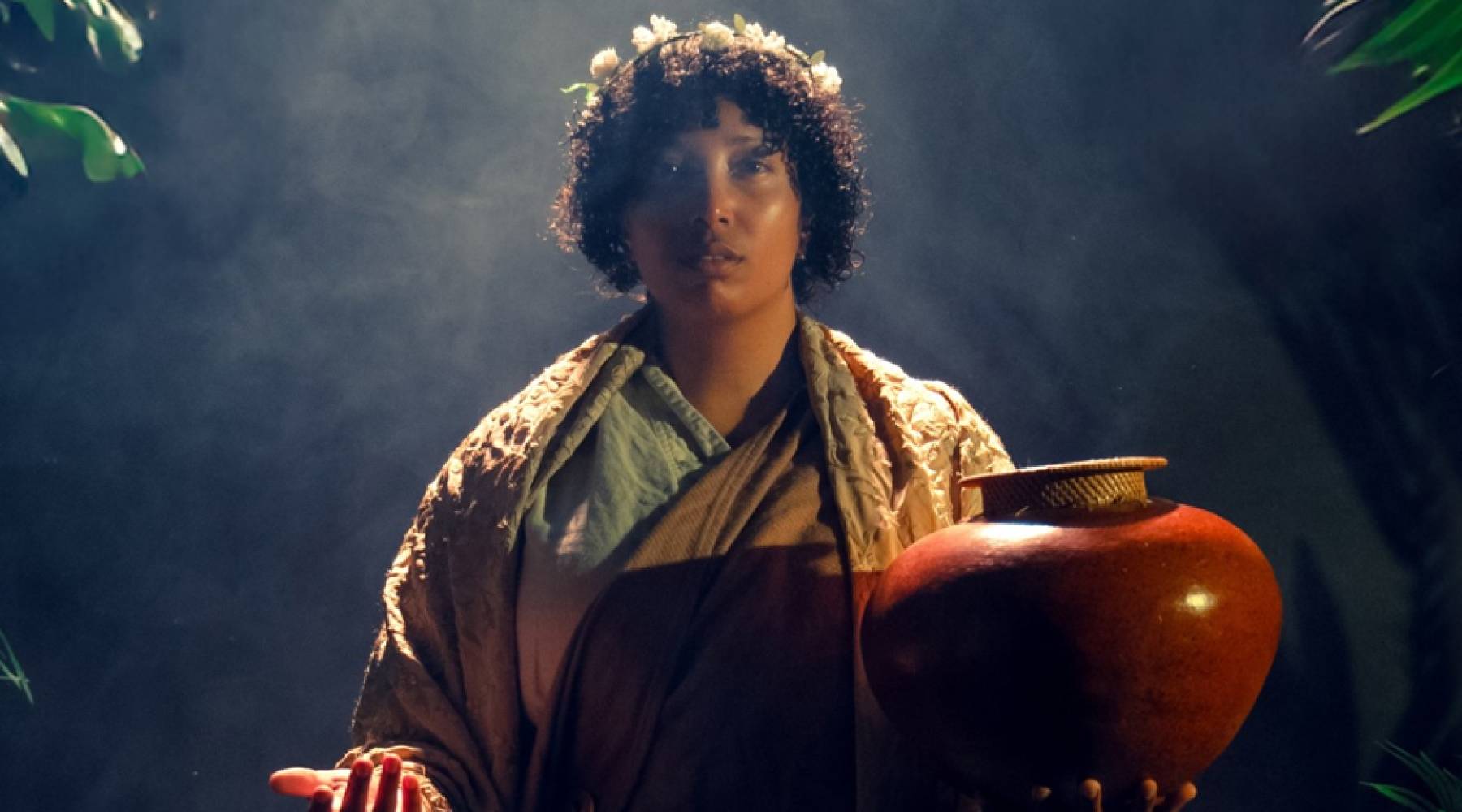Spoilers ahead! This review will discuss elements of the show that could be considered spoilers. You have been warned.
It was 7:50pm and the sky was like ink when I arrived at Basement Theatre to see Keagan Carr Fransch’s new work, presented by Black Creatives Aotearoa and Hand Pulled Collective and directed by Dione Joseph and Sam Phillips. I gazed up at four bold, black letters floating in a glowing, green box. The title of the show felt urgent, spelled in all caps—except for a rebellious lowercase ‘i’ at the end of a word that inspired scepticism. ANTi, a one-woman play “about a family forced to meet at the intersection of queer love, religious expectations, tragic heroines and Black womanhood”, promised to irradiate the contradictions, duality and joy in our midst.
Fransch’s performance was visceral. Every backhanded compliment and frostbitten stare one could endure at Sunday lunch materialised in her spellbinding storytelling. Fransch appeared fearless as she displayed unswerving vulnerability during engrossing recounts of hallway confrontations and kitchen stand-offs. All the while, exhibiting the brightness of hysterical eruptions that only happen with those who know where all your soft points are.
Fransch never looked away from the countless painful truths that coexisted in this story. Despite being the only actor onstage, she was always looking directly into the eyes of the characters she was conversing with. The way Fransch embodied the complicated love of people who had not yet accepted ALL of her was disarming, to say the least. Whether she was antagonising her sister or begging for her mother’s ear, Fransch’s courage to see every side of these interactions was unfaltering.
At one point during the play, Fransch clothed herself in her family’s imperfect affection and thanked them. “Thank you for your love.” She acknowledged their intentions to protect her through their imposing expectations. Then, she did something I didn’t see coming. Fransch removed the symbolic scarf she had caressed and hugged tightly moments before. “But I don’t need it anymore… I am safe now… I am loved… I am not alone.”
As she relinquished love that came with blindspots, Fransch made space for a love that was complete. Love that she already had. Love that embraced the woman she was rather than the woman someone else wished she could be. Love that didn’t ask her to hide.
Watching Fransch choose herself and the love of her partner while letting go of the permission she once needed from her family to be who she had always been, was equally uplifting and shattering. From witty remarks about “White Jesus” and respectability politics, we had arrived at inner-child healing transcendence. Fransch called upon the strength of all those who came before her and spoke her own freedom into existence.
I was in misty-eyed awe of this delightfully disruptive show and Fransch’s colossal range. ANTi is a must-see for anyone who wants to laugh their way to hope, liberation and self-determined euphoria.



